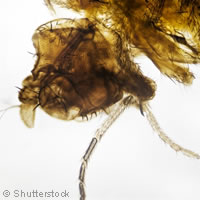Flower power determines win or lose verdict
New research has revealed that the so-called Flower (Fwe) protein has the power to mark weak cells for eradication, allowing fitter cells to remain and flourish. Fwe, a cell membrane protein present in multicellular animals, has authority during cell competition to deem some cells 'winners' and others 'losers'. Results from the study, which was partly funded by the European Research Council (ERC), are published in the journal Developmental Cell. The research conducted by the team of seven scientists from the Spanish National Cancer Research Centre (CNIO) in Madrid provides further insight into the process of cell competition. It may even contribute to the way we treat diseases that involve cell fitness imbalances such as cancer. 'We were interested in investigating how cells of fly wing imaginal discs distinguish winners from losers during cell competition,' explained CNIO's Dr Eduardo Moreno, who received an ERC Starting Grant in 2007 of almost EUR 1 million for the SUPERCOMPETITORS ('Genetic and Genomic Study of Cell Competition in Drosophila') project. These grants allow emerging scientists with a proven track record to consolidate their own research team and conduct independent research in Europe. When a cell develops, it compares its metabolic rates with surrounding cells. Consequently, those cells better able to adapt, proliferate at the expense of the less fit. This cell competition process was first described in the larval structures (called imaginal discs that help produce wings and other body parts) of fruit flies in 1975. Since the discovery of cell competition, other genes have been linked to cell competition (dmyc, the Drosophila homolog of the proto-oncogene c-Myc, is among the best studied). For their study, Dr Moreno and his CNIO team used a genomic approach and combined it with functional assays to try to identify the genes expressed in the early stages of cell competition. As a result, they discovered that three different forms of Fwe act as cellular 'tags' that contribute to the decision-making of whether a cell wins or loses. One particular Fwe tag has the power to not only label cells as losers but is responsible for activating their elimination by apoptosis (cell death). They also found that Fwe is necessary in cell competition, but does not play a role in general cell growth and survival. 'Taken together, our results suggest that Fwe isoforms [different forms of the same protein] generate the scaffold that is required and sufficient to label cells as winners and losers during competitive interactions among cells,' concluded Dr Moreno. In their paper, the authors note that the extracellular 'code' of the Fwe isoforms 'may have biomedical implications beyond cell competition because imbalances in cell fitness appear during ageing, cancer formation, and metastasis.' Cell competition may be a way to guarantee that only the best remain to contribute to the organism's growth and well-being. The role that Fwe performs in cell competition makes it an attractive focus for future study. One potential new avenue of research would be to explore the function of cell competition in isolation from other signals that control tissue growth. Dr Moreno's team involved in this study includes Christa Rhiner, Jesus M. Lopez-Gay, Davide Soldini, Sergio Casas-Tinto, Francisco A. Martin, and Luis Lombardia.
Countries
Hungary, Italy



